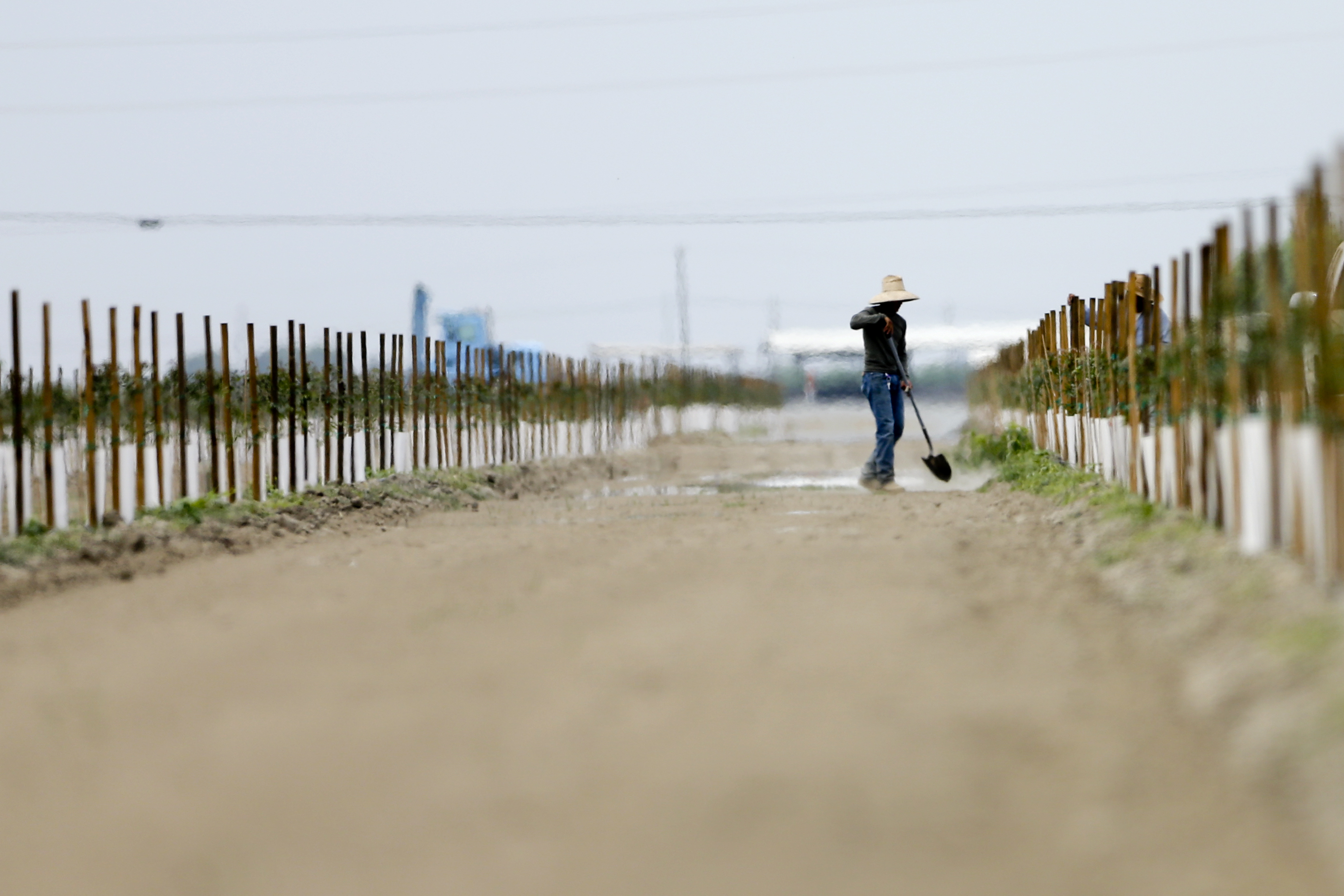How to innovate out of a drought
These are the tech innovations people are using to save water during the California drought


A free daily email with the biggest news stories of the day – and the best features from TheWeek.com
You are now subscribed
Your newsletter sign-up was successful
Despite El Niño showers, California is still facing a potential fifth year in one of the worst droughts on record. It's gotten severe enough that in April, Gov. Jerry Brown (D) imposed a 25 percent statewide reduction in urban water use.
The New York Times has painted a pretty bleak picture of Silicon Valley's role in helping California respond to the drought, suggesting venture capitalists had a "brief love affair" with clean technology and water conservation at the start of the decade, but have since moved on to investing more heavily in areas like social networking.
But that sort of analysis doesn't tell the full story.
The Week
Escape your echo chamber. Get the facts behind the news, plus analysis from multiple perspectives.

Sign up for The Week's Free Newsletters
From our morning news briefing to a weekly Good News Newsletter, get the best of The Week delivered directly to your inbox.
From our morning news briefing to a weekly Good News Newsletter, get the best of The Week delivered directly to your inbox.
Companies like Tule Technologies sell data and tools that help farmers make better decisions around irrigation. Startups are getting funding to help wineries track and adjust their water use. And some innovations come straight from the farmers themselves.
"Some people just assume that because California venture capital firms are not actively investing in water — or investing in water in a significant way — there is no hope," said Scott Bryan, president of Imagine H2O, a San Francisco-based nonprofit accelerator for water entrepreneurs. "I don't see it that way. There are venture funds from outside California that are active in this space."
Imagine H2O has worked to launch 60 drought technology-related ventures since 2009, Bryan said. A wide range of scalable ideas falls under the drought technology umbrella: data-related applications designed to promote conservation, ways to monetize solutions to the changing water-energy nexus, and food and agricultural projects.
In particular, there's a lot of room for private sector innovators to get involved with collecting, managing, and analyzing water use data, said Heather Cooley, who directs the water program at the Pacific Institute, an Oakland-based global think tank. More detailed data can lead to solutions for a variety of drought-related issues: farmers changing watering habits, urban households' over-irrigation, and water utilities better assessing leaks in their distribution systems.
A free daily email with the biggest news stories of the day – and the best features from TheWeek.com
Data also stands to close the glaring discrepancies in how water utilities across California monitor their customers' usage. State law mandates that all utility companies must meter this by 2025, but not everyone is there yet. That means those companies may not even know about or be able to address their customers' leaky faucets.
Meanwhile, places like San Francisco use new, high-tech meters that give companies real-time information on how much water their customers are using. When utilities start charging customers based on water use as opposed to a flat rate, customers generally respond by using about 15 percent less water, Cooley said.
Despite policy and other hurdles in the state's drought response, California has seen significant improvement. Much of the state is on track to meet Brown's reduction mandate, Cooley said. More broadly, in the past couple of years, she said she's seen increased recognition of the drought's severity and an increased willingness to make changes to water systems.
More than 150 experts from the public and private sectors weighed in on a 2014 California Council on Science and Technology report on the role of innovation in drought response. And in July, the state government hosted a one-day summit about leveraging water technology to respond to the drought.
"There's a lot of momentum right now," Cooley said. "It's an exciting time."
Julie Kliegman is a freelance writer based in New York. Her work has appeared in BuzzFeed, Vox, Mental Floss, Paste, the Tampa Bay Times and PolitiFact. Her cats can do somersaults.
-
 How the FCC’s ‘equal time’ rule works
How the FCC’s ‘equal time’ rule worksIn the Spotlight The law is at the heart of the Colbert-CBS conflict
-
 What is the endgame in the DHS shutdown?
What is the endgame in the DHS shutdown?Today’s Big Question Democrats want to rein in ICE’s immigration crackdown
-
 ‘Poor time management isn’t just an inconvenience’
‘Poor time management isn’t just an inconvenience’Instant Opinion Opinion, comment and editorials of the day
-
 Epstein files topple law CEO, roil UK government
Epstein files topple law CEO, roil UK governmentSpeed Read Peter Mandelson, Britain’s former ambassador to the US, is caught up in the scandal
-
 Iran and US prepare to meet after skirmishes
Iran and US prepare to meet after skirmishesSpeed Read The incident comes amid heightened tensions in the Middle East
-
 Israel retrieves final hostage’s body from Gaza
Israel retrieves final hostage’s body from GazaSpeed Read The 24-year-old police officer was killed during the initial Hamas attack
-
 China’s Xi targets top general in growing purge
China’s Xi targets top general in growing purgeSpeed Read Zhang Youxia is being investigated over ‘grave violations’ of the law
-
 Panama and Canada are negotiating over a crucial copper mine
Panama and Canada are negotiating over a crucial copper mineIn the Spotlight Panama is set to make a final decision on the mine this summer
-
 Why Greenland’s natural resources are nearly impossible to mine
Why Greenland’s natural resources are nearly impossible to mineThe Explainer The country’s natural landscape makes the task extremely difficult
-
 Iran cuts internet as protests escalate
Iran cuts internet as protests escalateSpeed Reada Government buildings across the country have been set on fire
-
 US nabs ‘shadow’ tanker claimed by Russia
US nabs ‘shadow’ tanker claimed by RussiaSpeed Read The ship was one of two vessels seized by the US military
